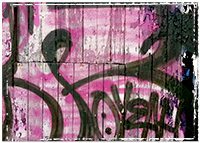My Brilliant Club Story
PhD title: “Youth’s perceptions towards the planning of the future ‘smart city’ in Europe.“
Scholars Programme course title: ‘ Can you plan the Future ‘Smart City’?
- How long have you worked as a PhD Tutor with The Brilliant Club?
I applied to the Brilliant Club at the start of my PhD, as one of the leaflets was inserted into the welcome pack. I have been teaching in schools across the West Midlands since Spring semester, 2019.
- How do you find the pupils engage with your subject? Has this been challenging?
My Scholar’s programme course is a bit different as the main focus of my research are teenager’s perceptions of urban planning and architecture. So, in a way, the course I am teaching in secondary schools directly involves the pupils as the research subject. I have found relating the issues around democracy, design, and participation to the immediate environment of the pupils – the school, their neighbourhood, the city they live in, helps immensely. I have found some challenges, particularly with students that are not interested in pursuing any type of built environment course at university, however, I counteract this by explaining the benefits of learning critical thinking, writing an academic essay and generally engaging with a subject at university level. Usually, this does the trick, and the pupil starts to engage more with the subject. Finally, treating the pupils as equals and not patronising them in any manner is key, I think we can learn as much from the students as they from us.
- Tell us about your highlights as a PhD Tutor?
I think the major highlights of the course have been always around the second or third lessons, when we discuss the issues of democracy and use scenario play. Almost always there is a click that happens amongst the pupils and suddenly they understand the link between the theory and the practice of planning. I have also been very proud of the three students so far which have had their essays published in The Scholar, the Brilliant Club Journal. Issue 13 and Issue 15 can be found here: https://thebrilliantclub.org/research-and-impact/the-scholar/
- Has anything about your experience as a PhD Tutor surprised you?
I have been surprised by how many of the terms, concepts and ideas that I have been using all throughout my academic and practical experience I have acquired in understanding by osmosis and face some initial barrier when I have to explain them in a simple language to secondary and primary pupils. I have also been consistently surprised by the level of debate in the classroom, often the level of critical discussion has been much better than in many university-based lectures and classrooms.
- Do you think your experience as a PhD Tutor is beneficial to your work outside The Brilliant Club?
Yes, I think that this experience has helped me in my teaching methods when considering Higher Education teaching, as well as definitely has helped me with my confidence in communicating my research to lay audiences.
- How do you balance your work as a PhD Tutor with your PhD studies?
The time commitment to the Brilliant Club Programme is usually concentrated over a few months and it is only a couple of hours every week. I think it is important to think of it as part of your PhD Studies, as it develops your pedagogical tools but also helps you crystalise your own thinking about your research, as you are constantly questioned by the pupils about concepts you are teaching. Balancing the pressures of the PhD programme with the Brilliant Club teaching is not a problem if examined from this angle.
- How did you find the training? Do you feel it prepared you well for teaching the pupils in the Key Stage/s you work with?
The training the Brilliant Club provides was quite extensive and definitely prepared me well in regard to the systems and teaching experience of the programme. For first started the training takes place over a weekend, where you get to socialise with other researchers, the peer to peer exchange of information is really interesting. There are core and optional modules which allow you to tailor your learning experience. There were quite a few practical examples of teaching techniques to use with pupils that I have now applied to all of my teaching. In any case, I felt really comfortable to discuss further questions with my coordinator and many of the other Brilliant Club staff after the scheduled training ended. I definitely felt prepared.
- Would you recommend The Scholars Programme to fellow PhD students?
Wholeheartedly, yes!



